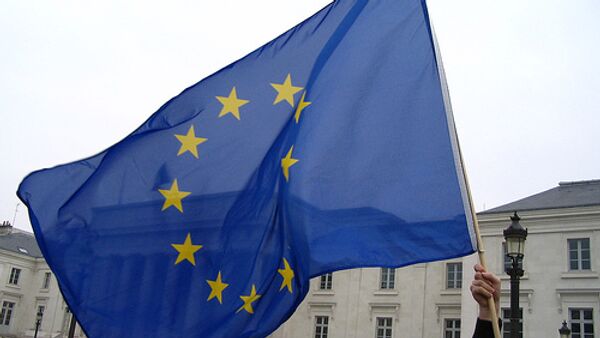The European Union, hobbled by its euro crisis and the debt of its southern members, requires some radical changes if it hopes to survive. The EU needs to undergo either a general or a local fiscal and constitutional surgery. Both options would be very painful, but this is all Brussels can do.
Fiscal compact for the willing
The EU seems to favor the latter option, although there are possible alternatives here. The European Commission lawyers and eurozone governments have started working on a new fiscal compact aimed at stronger budgetary discipline and closer coordination of economic policies, as their leaders agreed at their Brussels summit in mid-December.
The fiscal compact was designed to formalize changes to the 2007 Lisbon Treaty, which amended the Maastricht Treaty and the treaty establishing the European Community. The signatories are free to approve or reject it.
The document stipulates tough budgetary limits for each country, controlled expenses, a commitment to make national budgets deficit free, and stronger coordination of the member states’ financial and economic policies with “more intrusive control of the national budgetary stance by the EU.” It is rumored that President of the European Commission Manuel Barroso is especially pleased by this last provision, because it gives him and his staff fiscal policy-making authority in the EU.
Britain, which has always been wary of initiatives coming from the continent, refused to support changes to the EU constitution. London was ready to sign the fiscal compact on special terms and with exceptions that would allow it the right to vote without making fiscal or budgetary commitments.
Although Britain entered the European common market in 1973, it has never been particularly close with the united Europe. It did not join the eurozone or the visa-free Schengen zone, although it supports Schengen legally and is a member of its common information system. Yet Britain has always been consulted on issues concerning the functioning of the EU and amendments to its fundamental documents.
London’s refusal to support amendments to the constitution could transform the EU into a group of 26 plus one, with Britain standing apart from the other member states.
But the EU is not a union consisting of equal members, and the situation is not as simple as it may seem. Only 23 countries, including the biggest debtors – Greece, Portugal, Spain and Ireland – have supported the initiative of Germany and France. Furthermore, the Irish cabinet likes the idea but fears it may have to announce a referendum, which is a bad omen considering that the Irish initially rejected the Lisbon treaty in 2008 and approved it only a year later.
Sweden has said that it needs more time to consider the details, and Slovakia, the Czech Republic and Hungary have similar concerns.
A two-speed Europe without Sarkozy?
In short, Europe is unlikely to end the year 2012 united, integrated and renewed. Rather, it will have to resort to dieting, cutting loose those who reject the planned general surgery.
Some of those who have pushed for this fiscal and constitutional surgery, such as French President Nicolas Sarkozy, may not be around to enjoy its results.
He and German Chancellor Angela Merkel hinted nearly three years ago that the EU could be transformed into a two-speed union, with those who can maintain the fiscal discipline surging ahead with the rest doing their best to catch up. A two-speed union is the ultimate goal of the fiscal compact.
However, with France preparing for the presidential election in late April, and although Sarkozy is expected to announce his decision in February, few people doubt that he will want to leave the Elysée Palace.
According to polls, Sarkozy is lagging somewhere between 10% and 4% behind his main rival, former leader of the French Socialist Party Francois Hollande. Marine Le Pen, president of the ultra-right Front National, could receive 14% to 19% of the vote.
Sarkozy hopes to be re-elected thanks to the 2009 election reform, which allows French citizens living outside the country to have their deputies in parliament. Prior to that, French expats could only vote for candidates from French districts.
But now France may have a deputy from the United States. A year ago, the seat was expected to be filled by Christine Lagarde, managing director of the International Monetary Fund since July 2011. There will be a deputy from North Africa, Northern Europe (Britain, Ireland, Scandinavia and the Baltic countries) and a deputy from Spanish speaking European countries. In all, 11 overseas election districts will have their deputies in the French parliament.
Experience shows that the majority of French citizens living abroad vote for center-right parties, in particular Sarkozy’s Union for a Popular Movement (UMP). They are even more pleased now that he has given them the right to elect their own deputies, which could increase his electorate by 2.5 million votes.
The presidential elections in France will likely be held in two rounds, and it is unclear who will win. But if the hyper-energetic Sarkozy follows in the footsteps of the imposing Italian prime minister, Silvio Berlusconi, life in Europe will become much more boring.
The views expressed in this article are the author's and may not necessarily represent those of RIA Novosti.

